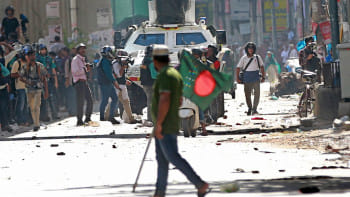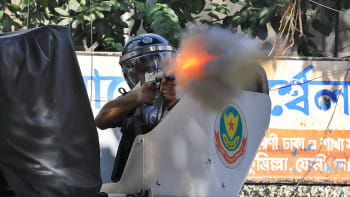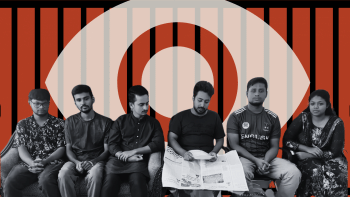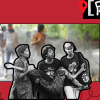Only justice for the killings can restore public trust

Try as it may, the government can no longer circumvent critical questions about the role of security forces and ruling party cadres in the deaths of protesters. Five trends that have emerged from the law enforcement measures taken in response to the violent events of July 18-21 are blaming the violence squarely on BNP-Jamaat (without evidence); mass arrests, often through block raids; gross violation of Supreme Court guidelines for arrests and remand; making destruction of public properties—rather than the deaths—a central focus of investigation; and suppression of student organisers and protesters through various tactics. All this has reaffirmed doubts about the government's sincerity to ensure justice for the horrific tragedy that befell our nation.
Against this backdrop, the prime minister's statement on Wednesday about seeking cooperation from the United Nations and other international organisations to conduct a "fair and proper investigation" into the nationwide violence offers a ray of hope. This comes after repeated calls for credible international investigations into the deaths over the last few days. Even the UN and the European Union also demanded a thorough and impartial probe. The PM, we may recall, earlier said the government would seek "foreign technical assistance" for the judicial inquiry committee. The law minister has already indicated that the commission—initially tasked with investigating only the six deaths of July 16—can now probe all the killings that have since occurred.
Where does it all leave us, probe-wise? The picture that emerges from the above scenario is a bit confusing. We have no details yet about the extent of any possible UN involvement or how it will sit with the ongoing investigations by police and the judiciary. Will it be limited to the technical aspect of the investigation only? What about other stages of the investigation and justice processes? With the entire law enforcement machine keyed to political manoeuvres, how much help the judicial commission or any team headed by the UN will have from relevant state departments in, say, collecting or verifying evidence remains to be seen.
But as things stand, there is a huge gap between what's being said or sought publicly and what's being done on the ground. On the ground, since July 18, at least 10,769 people—including many students—have been arrested in 673 cases across the country, creating widespread panic. Even when the PM was making her UN probe call, there were reports from different parts of the country about security forces violently disrupting the protesters' "March for Justice" by charging batons and using other heavy-handed tactics. At least 100 were injured, and 83 detained, as per a report. Clearly, protesters continue to be targeted as they were before. Now consider the fact that no legal steps have been taken against any member of the security forces involved in the killings. The disparity couldn't be more obvious, indicating that the government is still in denial about police culpability, and without a complete turnaround in current practices, justice may continue to elude us.
To this day, the number of people who died varies widely—at least 163 as per by this daily, 150 as per the government, 211 as per Prothom Alo, 266 as per the student platform. The actual number could be much higher. So many deaths cannot go unaddressed or unpunished. The government must realise that nothing short of a fair investigation into its own forces—who shot indiscriminately at the protesters, aided by party cadres—will restore public order or give credibility to its efforts. Any investigation also must delve into how the conflicts became so violent in the first place, and lead to accountability for those truly responsible. The government should also stop harassing the protesters and ordinary citizens immediately.


 For all latest news, follow The Daily Star's Google News channel.
For all latest news, follow The Daily Star's Google News channel. 











Comments